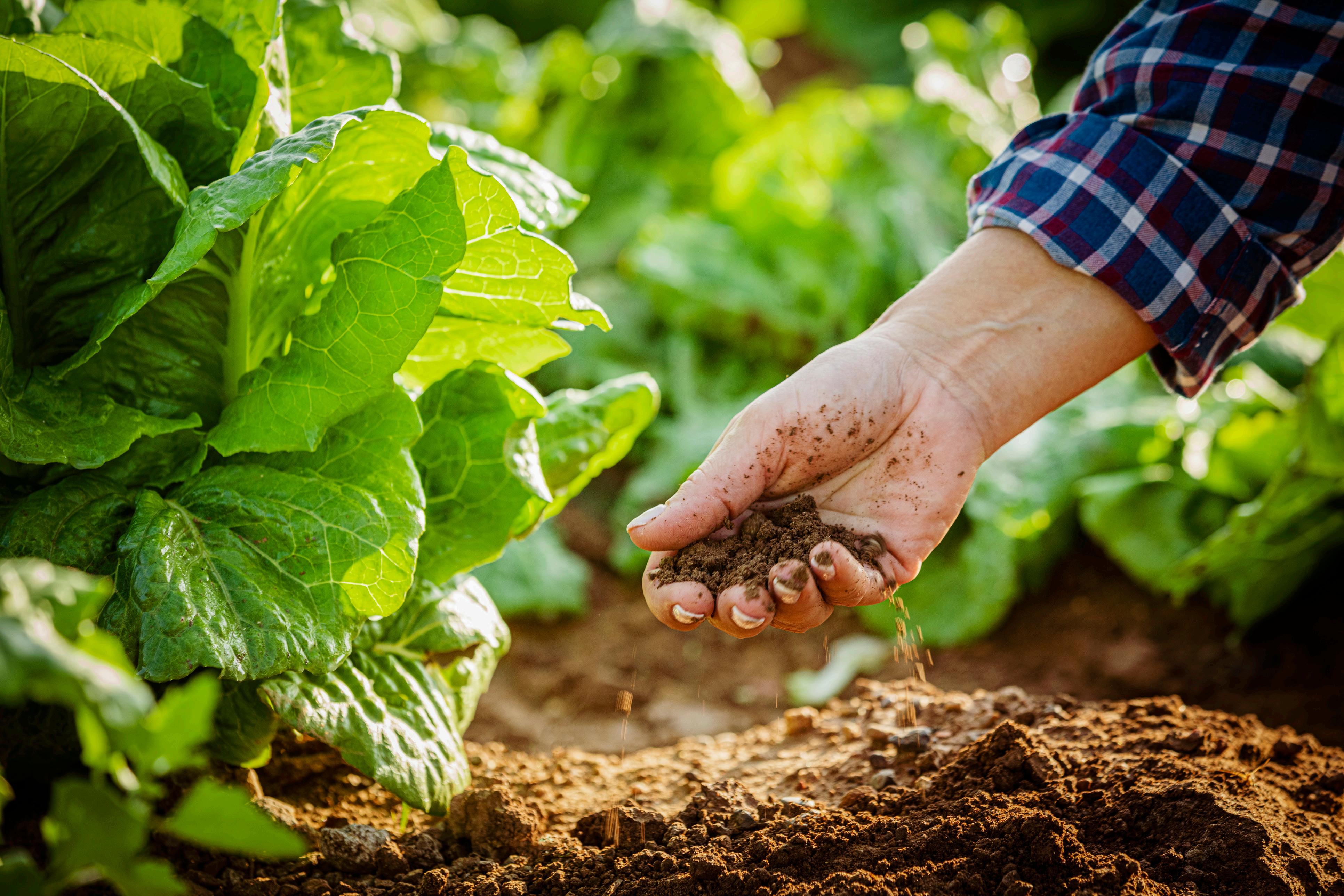

The Art of Sustainability
ROYAL THAI’S UNTOLD STORIES

OUR MISSION & ASPIRATIONS
At Carpets Inter, our mission is clear: to achieve a net-zero carbon footprint by 2050.
We are deeply committed to aligning our cultural values and daily operations with the United Nations' Sustainable Development Goals. Every day, we focus on implementing innovative strategies and leveraging advanced technologies that drive meaningful reductions in our environmental impact.
Our dedication extends beyond simply addressing climate change; we aim to improve the health and sustainability of the planet’s entire biosphere. Embracing the principles of a circular economy, we are determined to make a significant, positive contribution to creating a cleaner, greener, and more sustainable future—for the planet, its people, and all living systems.



Sludge to Soil
A Sustainable cycle is reimagined
Eco friendly dyeing and 100% Recycled water
Royal Thai has been operating a 100% water recycling system for its manufacturing water waste, since 2014. This initiative provides a valuable eco-friendly dyeing system where zero effluent is released into the environment and a safe and efficient water source for other manufacturing processes including our kitchens toilets and gardens.


A sustainable solution for waste “Sludge”
Through the recycling process, pure water is separated from contaminated water using a series of steps. During these processes, the water contamination is converted

Organic Fertilizer driving healthy crops, healthy soil and carbon capture
A partnership with a dynamic forward looking local fertilizer company allowed the transformation of the solid waste into an essential base material for producing high-grade organic fertilizer, benefiting the cultivation of crops like pineapple, cassava, sweetcorn, and rubber trees. The fertilizer can aid crop yield for the local growers by between 10% to 50%.

Humus – Nature’s “Black Gold”
Organic fertilizers do a lot more than just provide nutrients for growing crops; they also contribute to the creation of humus which is the single most important determinant of success in high-production agriculture and a powerhouse stimulator for the soil to assist sequestering CO2 Humus is a dark, organic material that forms when plant and animal matter decay. It's like nature's own fertilizer that enriches the soil. In agriculture, humus plays a crucial role by improving soil structure, retaining moisture, and providing essential nutrients for plant growth. Farmers love humus because it helps plants grow strong and healthy.
Organic fertilizers, like compost and manure, are rich in organic matter that breaks down into humus over time. When farmers use organic fertilizers, they add more organic material to the soil, promoting the formation of humus.
Waste equals Food
As in nature, the concept of "waste equals food" embodies the idea that in a natural ecosystem, there is no true waste. Instead, every byproduct or waste material generated by one organism becomes a valuable resource or nutrient for another organism in the ecosystem. This efficient cycle continuously recycles and reuses resources, promoting sustainability, and minimizing waste accumulation. Essentially, nature operates in a closed-loop system where what may be considered waste for one organism serves as nourishment or raw material for another, showcasing the intricate balance and interconnectedness of natural systems.




Contributing to Carbon Capture
The solution is right under our feet
CARBON DIOXIDE

CARBON
Organic farming methods, such as incorporating compost, cover cropping, and reduced tillage, help increase organic matter in the soil. This organic matter acts like a sponge, capturing carbon dioxide from the atmosphere during photosynthesis and storing it in the soil as stable carbon compounds. Studies indicate that organic farming systems can sequester approximately 2,100 kg of carbon per hectare annually, highlighting the significant role organic practices play in mitigating climate change.
Since 2014, we have contributed to produce 15.5 million kg of organic fertilizer to farming 5,350 acres of Thailand’s Cropland each year.
Study: "Carbon Sequestration in Agricultural Soils: A Review of Management Practices" by Powlson et al. (2001)
DID YOU Know ?
Healthy soil and Carbon Capture
The sludge donated has contributed to the fertilization of over 5,350 acres of Thailand’s agricultural cropland
No credits for Carbon Capture!
The waste-to-fertilizer process contributes to the production of healthy soil and carbon capture through the production of Humus. However, there is no carbon credit or offset award for this process to the company.
Improving soil can offset emissions
However, there is no carbon credit or offset award for this process to the company. If we were to rebuild organic matter by just 1% in US agricultural soils –“4.5++ billion tonnes” of the CO2 gas would be sequestered from the atmosphere into agricultural farmland representing over 50% offset of their emissions.
Carbon Water Filter
Carbon in our soil acts like your carbon water-filter. It captures heavy metals and toxins that are unwanted in the water supply, eliminates the need in agriculture for toxic chemical fertilizers (pesticides) and as a result prevents the contamination of our water table and fresh water supply.
Enhancing Soil Health
Cultivating a thriving microbial ecosystem is key for the decomposition of organic matter, a process that enriches the soil while also improving its texture and facilitating optimal air flow. The carbon present in soil serves as an effective natural filter, trapping heavy metals and toxins to prevent them from contaminating our drinking water.
Increasing Crop Yields
Healthy soil promotes better root development, leading to increased nutrient absorption and water retention, resulting in up to 25 higher crop yields.
Minimizing Harmful Pesticide Usage
Soils rich in nutrients and plants that are properly fertilized tend to deter pests. These pests are usually attracted to plants that are stressed or lacking in nutrients, making them more vulnerable to infestations. By ensuring the fertility of the soil and the health of the plants, farmers can effecti vely reduce the need for pesticides , maintaining pest control through natural health and balance.

Waste to Wow
Transforming an Eco Headache into Sustainable Magic
Plastic pollution has become one of the most pressing environmental challenges of our time, with single-use PET bottles emerging as a symbol of the pervasive issue. Every year, millions of bottles are discarded worldwide, finding their way into landfills, rivers, and oceans, where they persist for centuries, wreaking havoc on ecosystems and wildlife. But amidst the alarming tide of plastic waste; there shines a beacon of hope: the innovative use of recycled PET bottles in the production of interior surfaces.
Reshaping Environmental Challenges into Sustainable Solutions
Globally, over 500,000 M PET bottles are produced annually, equivalent to roughly 1 million bottles per minute.That's enough to stretch around the Earth more than 20 times each day!
Shockingly, only a fraction of these bottles is recycled, with estimates suggesting that less than 10% are effectively collected and repurposed.


The environmental impact is staggering: PET bottles can take up to 450 years to decompose, releasing harmful chemicals into the soil and water during their slow decay.
Additionally, countless marine animals and birds suffer each year from ingesting or becoming entangled in plastic waste; it's estimated that over 100,000 marine mammals are dying annually from plastic pollution.
Amid this crisis, a growing movement is reshaping the narrative around plastic waste. Leveraging innovation and sustainability, forward-thinking companies are transforming discarded PET bottles into stylish, functional products, offering a glimmer of hope in the battle against plastic pollution.


EcoSoft, a pioneering product by Royal Thai since its 2005 launch, stands out for its innovation. Designed as an eco-friendly alternative to traditional PVC backings, EcoSoft is crafted from 85% recycled PET bottles, highlighting its commitment to sustainability. It has earned acclaim not only for its environmental benefits but also for its superior underfoot comfort and enhanced acoustic properties. Impressively, nearly 1 billion PET bottles have been recycled for use in EcoSoft's production process.







Recycled PET Bottles Plastic pollution
PET Flake
PET Carded Fiber
PET raw fiber
Beyond serving as a carpet tile backing, EcoSoft's excellent acoustic capabilities have led to the development of a highly flexible acoustic panel system, known as RT acoustics. With constructions like EcoSoft Solo and Duet, which contain 85% recycled content, and Duet featuring additional recycled wool, these innovations underscore sustainable development.
C ONS TRUCTION


Thermo-bonded polyester combine with recycled PET post consumer made from discarded water bottles up to 60%.



RE C Y CLED PO LYE S TER & UP C Y CLED W OOL BLEND
RE C Y CLED PO LYE S TER FIBER
Recycled polyester and upcycled wool blend up to 60%, enhance sound absorption.
mm.
mm.

The demand for EcoSoft and RT acoustic panels is growing as customers become more aware of their sustainability and performance advantages. We are on the verge of surpassing our initial target of recycling 1 billion bottles and are setting our sights on the next billion, contributing to the planet's recovery from pollution with a touch of sustainability magic.




THAILAND
+66 2314 5 402 contact@royalthai.com
HONG KONG
+852 2359 8900 hongkong@royalthai.com
MACAU
+852 2359 8900 macau@royalthai.com
CHINA
+86 136 0030 8308 china@royalthai.com
INDIA
+91 124 469 3900 india@royalthai.com
SINGAPORE
+65 6235 2477 singapore@royalthai.com
AMERICAS
+1 800 433 24 40 calhoun@royalthai.com
MIDDLE EAST
+971 4 451 7659 dubai@royalthai.com
UNITED KINGDOM
+4 4 7 741 261203 unitedkingdom@royalthai.com R OYA LT H A I .
